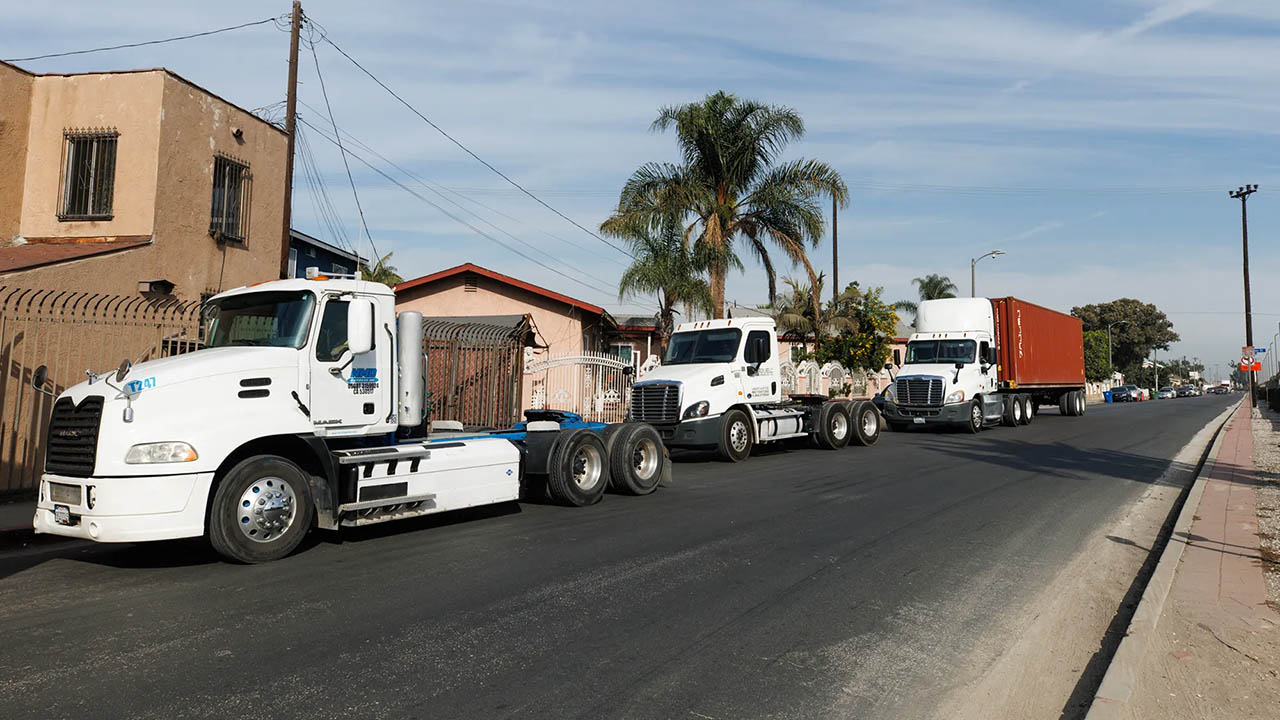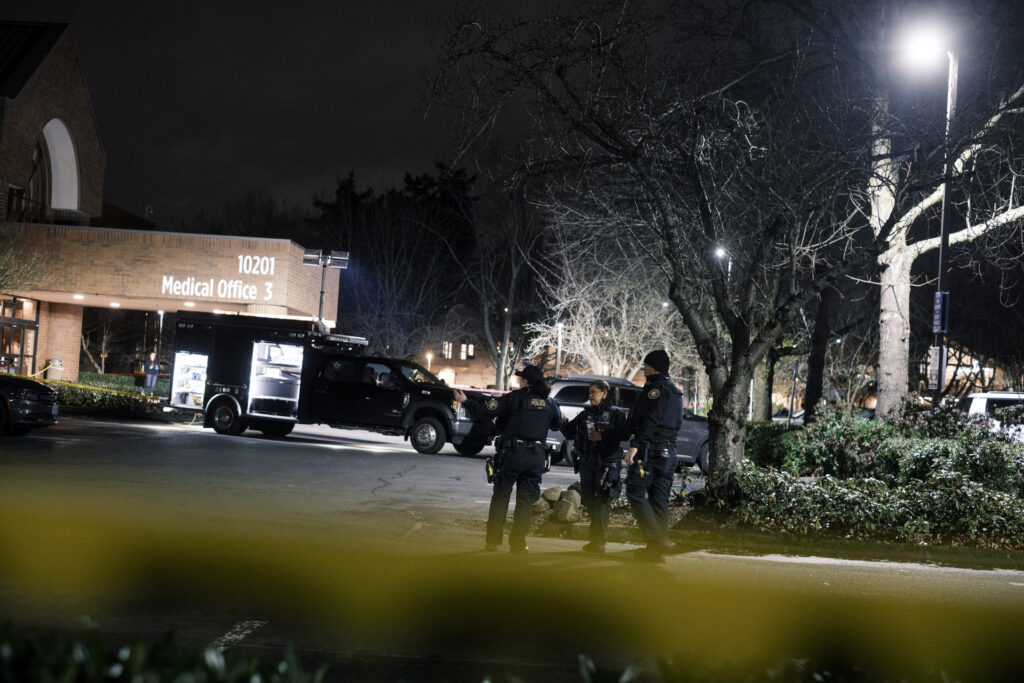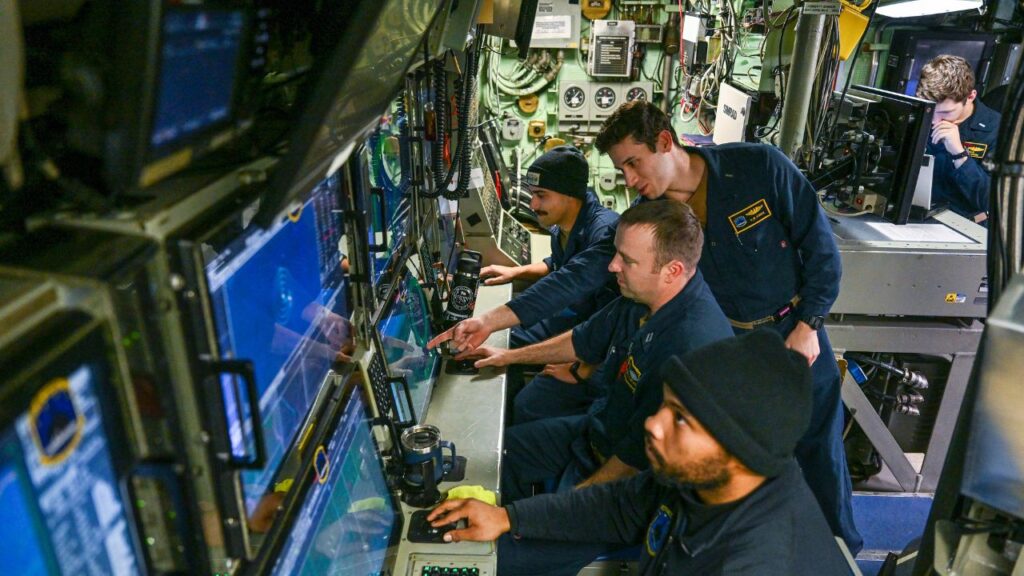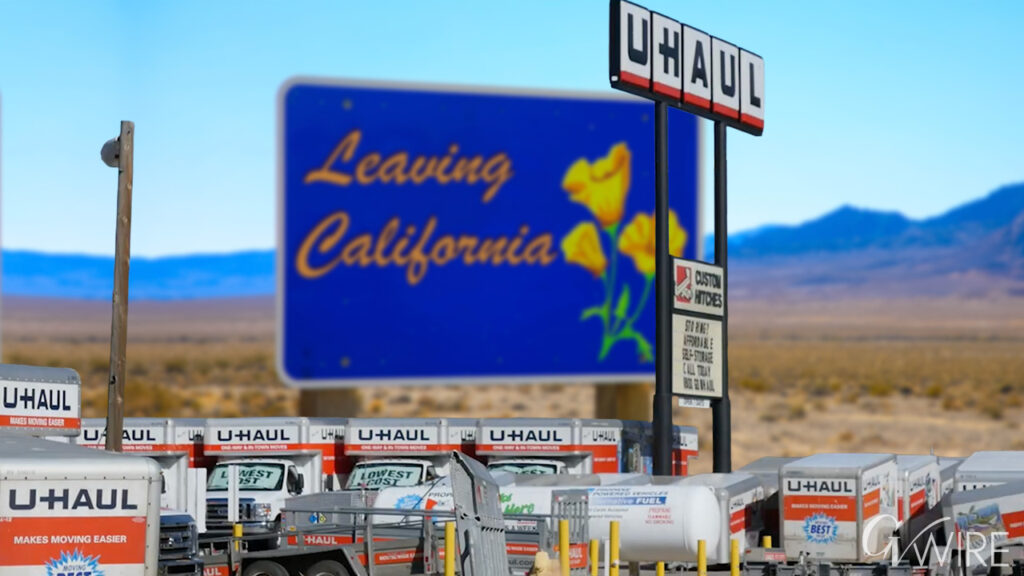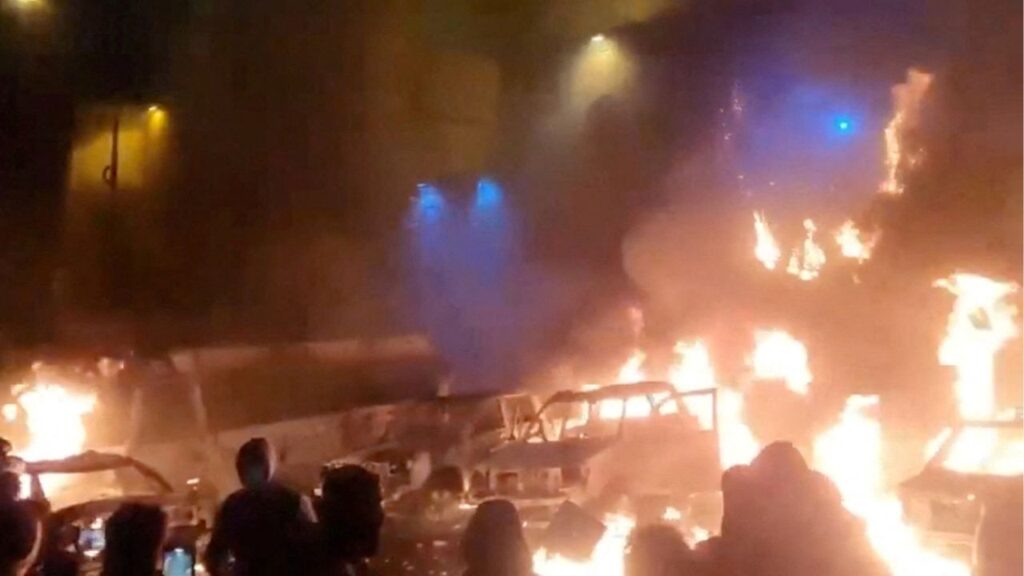California abandons key clean-air regulations ahead of Trump's inauguration, citing potential opposition. (CalMatters/Carlin Stiehl)

- California withdraws four clean-air rules, including diesel truck ban, due to anticipated opposition from Trump.
- State officials cite uncertainty and potential litigation from incoming administration as reasons for withdrawal.
- Environmental groups express concern over the impact on public health and air quality in disadvantaged communities.
Share
California has decided to abandon its groundbreaking regulations phasing out diesel trucks and requiring cleaner locomotives because the incoming Trump administration is unlikely to allow the state to implement them.

Alejandro Lazo
CalMatters
State officials have long considered the rules regulating diesel vehicles essential to cleaning up California’s severe air pollution and combating climate change.
The withdrawal comes after the Biden administration recently approved the California Air Resources Board’s mandate phasing out new gas-powered cars by 2035, but had not yet approved other waivers for four diesel vehicle standards that the state has adopted.
President-elect Donald J. Trump has threatened to revoke or challenge all zero-emission vehicle rules and California’s other clean-air standards. By withdrawing its requests for U.S. Environmental Protection Agency approval, the Newsom administration is signaling a dramatic step back as the state recalibrates in anticipation of the new Trump era.
California Withdraws Pending Waiver Requests
“California has withdrawn its pending waiver and authorization requests that U.S. EPA has not yet acted on,” Air Resources Board Chair Liane Randolph said in a statement. “While we are disappointed that U.S. EPA was unable to act on all the requests in time, the withdrawal is an important step given the uncertainty presented by the incoming administration that previously attacked California’s programs to protect public health and the climate, and has said will continue to oppose those programs.”
Environmentalists were distressed, saying it puts communities at risk and dismantles key programs.
“To meet basic standards for healthy air, California has to shift to zero-emissions trucks and trains in the coming years. Diesel is one of the most dangerous kinds of air pollution for human health, and California’s diesel problem is big enough to cast its own shadow,” Paul Cort, director of the group Earthjustice’s Right To Zero campaign, said in a statement. The group called on “Governor (Gavin) Newsom, state legislators, and our air quality regulators to join us — to clean up our freight system and fix the mess EPA’s inaction has created.”
Related Story: New California Bill Would Block Trans Females From Playing in Girls’ ...
Impact on Advanced Clean Fleet Rule
California’s Advanced Clean Fleet rule, which phases out diesel trucks, was one of the most far-reaching and controversial rules that California has enacted in recent years to reduce air pollution and greenhouse gases. It would have ended the sale of new fossil-fuel trucks in 2036 and required large trucking companies to convert their medium and heavy-duty fleets to electric or hydrogen models by 2042.
The truck fleet rule was approved in 2022 after years of analysis, public hearings and discussions with industries and experts. It would have ended diesel’s stronghold on goods movement in the state, with potentially profound effects on the state’s environment and economy.
Trucking companies had already sued the state to stop the measure, saying electric and hydrogen big rigs are not practical for long-haul uses and that it would destroy the state’s economy.
“The California Trucking Association has consistently stated the Advanced Clean Fleets Rule was unachievable,” Eric Sauer, chief executive of the association, said in a statement. He said the industry would work with the state air board and EPA “to further reduce emissions in a technologically feasible and cost-effective manner that preserves our State and the Nation’s critical supply chain.”
Related Story: What Ignited the Deadly California Wildfires? Investigators Consider an Array ...
Other Withdrawn Measures and Health Concerns
Diesel exhaust has been linked to cancer and contains fine particles that can trigger asthma and heart attacks as well as gases that form smog. Low-income, disadvantaged communities of color near ports, freeways and warehouses, especially in the Los Angeles and Long Beach area, have long complained about noxious and dangerous diesel exhaust.
The state withdrew three other measures regulating emissions from diesel-powered locomotives, commercial harbor craft and refrigeration unit engines that are hauled by trucks and rail cars.
Under the railroad rule, only locomotives less than 23 years old would have been allowed in California beginning in 2030, unless they were zero emissions. The rule also limited how long they could idle. People living in communities with trains and rail yards have long complained that the emissions are making them sick. Railroads said no viable zero-emission locomotive technology and infrastructure exists yet so the rule’s “timeline is impossible,” and that it would prematurely retire viable equipment and disrupt goods movement.
Under the Clean Air Act, Congress more than a half-century ago granted California the unique ability to set its own aggressive emission standards for cars, trucks and other vehicles because of its severe smog. But the federal EPA must grant California a waiver to implement them.
For decades, the EPA has granted California the waivers. Only one waiver was initially denied — a 2008 rule setting greenhouse gas emission standards for cars — and that decision was quickly reversed and the waiver granted.
But when Trump was last in office, his administration took aim at the state’s special status to enact stricter rules — one of the more significant environmental clashes of the first Trump era. The Biden administration in 2022 reversed those efforts.
California air-quality officials have been waiting for years for the Biden administration’s EPA to approve the last four rules, hoping that time wouldn’t run out. But the EPA failed to act in time.
Randolph told CalMatters that Biden’s EPA had informed California that it did not have time to complete the four waivers, prompting the air board to withdraw them.
“Once we knew that, we realized that we needed to deploy an offensive strategy to make sure that we maintained control of the waivers, and so we pulled them back,” Randolph said. “The Trump administration has not indicated a lot of support for our clean air and climate strategy, right? So our concern was that if we leave them hanging out there, we don’t know what they’re going to do with them. So we thought it would be better to maintain control.”
What’s more, Randolph said litigation will be increasingly likely under the incoming Trump administration so it was time to “protect and defend the work that we’ve already done.” Some business groups have already sued to try to block the mandate banning sales of gas-powered cars in 2035.
Related Story: Fire Tornadoes Are a Risk Under California’s Extreme Wildfire Conditions
“We know there’s going to be a lot of litigation in the offing, whether it’s entities suing us, or us going on the offense and trying to protect our ability to move forward to address both air quality and climate change,” she said.
California may have to suspend any future rule-making for vehicles over the next four years of the Trump administration and rely instead on voluntary agreements with engine manufacturers, trucking companies, railroads and other industries.
“The California Air Resources Board is assessing its option to continue its progress as part of its commitment to move forward the important work of improving the state’s air quality and reducing harmful pollutants that contribute to poor health outcomes and worsen climate change,” Randolph said in the statement.
“It’s clear that the public health, air quality, and climate challenges that California faces require urgent action. We are ready and committed to continuing the important work of building a clean air future.”
The truck fleet rule would have affected about 1.8 million medium and heavy-duty trucks on California roads, including delivery trucks used by FedEx, UPS and Amazon. The trucking industry had cited the high costs of zero-emission vehicles, limited charging and fueling infrastructure, and the financial burden on small operators.
Some provisions, for drayage trucks that serve ports, were supposed to be implemented already, but the air board put them on hold pending the outcome of the Biden administration’s approval.
Some companies, including Pepsi, have already rolled out electric and hydrogen fleets. Amazon has deployed 50 heavy-duty electric trucks in Southern California as well as hundreds of electric vans nationally. Sales of zero-emissions trucks have increased despite no deadlines kicking in. In 2023, one out of every six medium and heavy-duty trucks sold in the state — more than 18,000 — were zero emissions.
About the Author
Alejandro Lazo writes about the impacts of climate change and air pollution and California’s policies to tackle them. He’s written about the state’s groundbreaking electric vehicle mandate, the oil industry’s efforts at capturing carbon from fossil fuels, and how California’s climate programs have created a robust cow poop industry.
About CalMatters
CalMatters is a nonprofit, nonpartisan newsroom committed to explaining California policy and politics.
RELATED TOPICS:
Categories

Google Guys Say Bye to California



